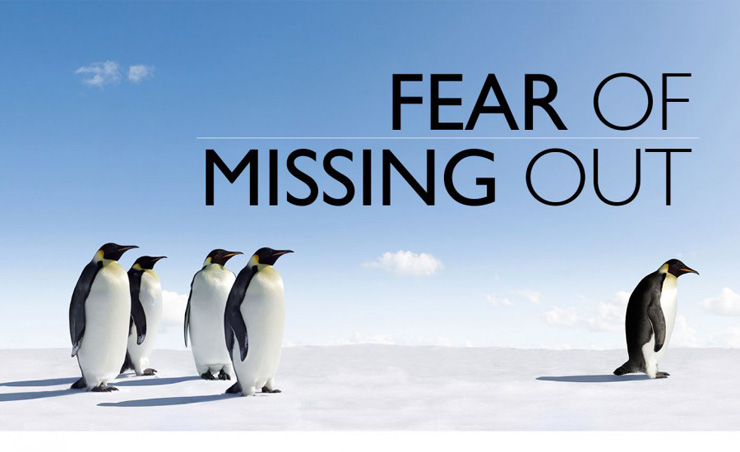FOMO. The social angst that is the Fear of Missing Out. That feeling of being left out, missing something fun or important, characterized by the desire to stay constantly connected to what others doing.
FOMO is nothing new but with escalating social media usage amongst all ages, it’s engulfing the nation faster than you can download Pokémon Go. We’ve all experienced it at some stage but to what degree? This little four-lettered word that was added to the Oxford dictionary in 2013, is it ruling your life? Let’s find out.
Research confirms that social media is affecting our wellbeing, leading to high levels of depression and anxiety. With adults spending on average 2.1 hours per day and teens 2.7 hours per day on social media, we have a growing desire to stay continually connected to what others are doing. The impact? One in four adults experience FOMO.
FOMO looks pretty harmless, on the outside. After all, being curious, social and wanting to stay connected is a good thing, right? This is the challenge as social media is both a cause of stress and a means of managing stress. But FOMO is a lot worse than you think.
Of course we’ve all experienced feelings of missing out on cool stuff that our friends might be doing but with social media these feelings are increased dramatically. Take for example teens, whose lives are dominated by social media. One in two teens find if difficult to sleep or relax after spending time on social media sites. Not surprising considering over half of Aussie teens connect to social media fifteen minutes before bed every night.
Do you find yourself checking your social media again and again and again, so you don’t feel left out of the loop? It’s exhausting. And according to the latest research,leads to brain ‘burnout’ from this always-on, constant connectivity.
Even though we know Facebook and other social media networks are not a realistic depiction of someone’s life, when we see others having a great time, we want to post something cool too! As Caterina Fake, entrepreneur and co-founder of Flickr highlights;
‘Social software is both the creator and the cure of FOMO. It’s cyclical.’
This rollercoaster of emotion is hard to get off. When you’re caught up in the online world you are not connected to the real one. FOMO fuels our search for happiness and validation and that addictive ping from our phones. There’s even rehab for it! The comparison sets in and we focus on others rather than ourselves.
So what can you do to keep your FOMO under control? Go back to why you used social media in the first place, to connect with friends. When you are with them in person, be with them and put away the phone. And remember, things aren’t always what they seem. Social media is often the highlight reel.
It sounds cheesy, but be grateful. When we practice gratitude and being thankful, there’s no room to focus on anything else other that what we appreciate. It’s not possible to be upset or anxious at the same time as being grateful. Try it.
And finally, try the opposite to FOMO. Go JOMO! You’ve guessed it, the Joy Of Missing Out. You are so happy and busy doing your own thing that you have no time to worry or care about missing out on what’s going on elsewhere.
This virtual information overload fueled by FOMO can only rule your life if you let it. Practice these tips of being present, setting boundaries and saying no and you’ll soon be swapping your FOMO for some welcome JOMO!


